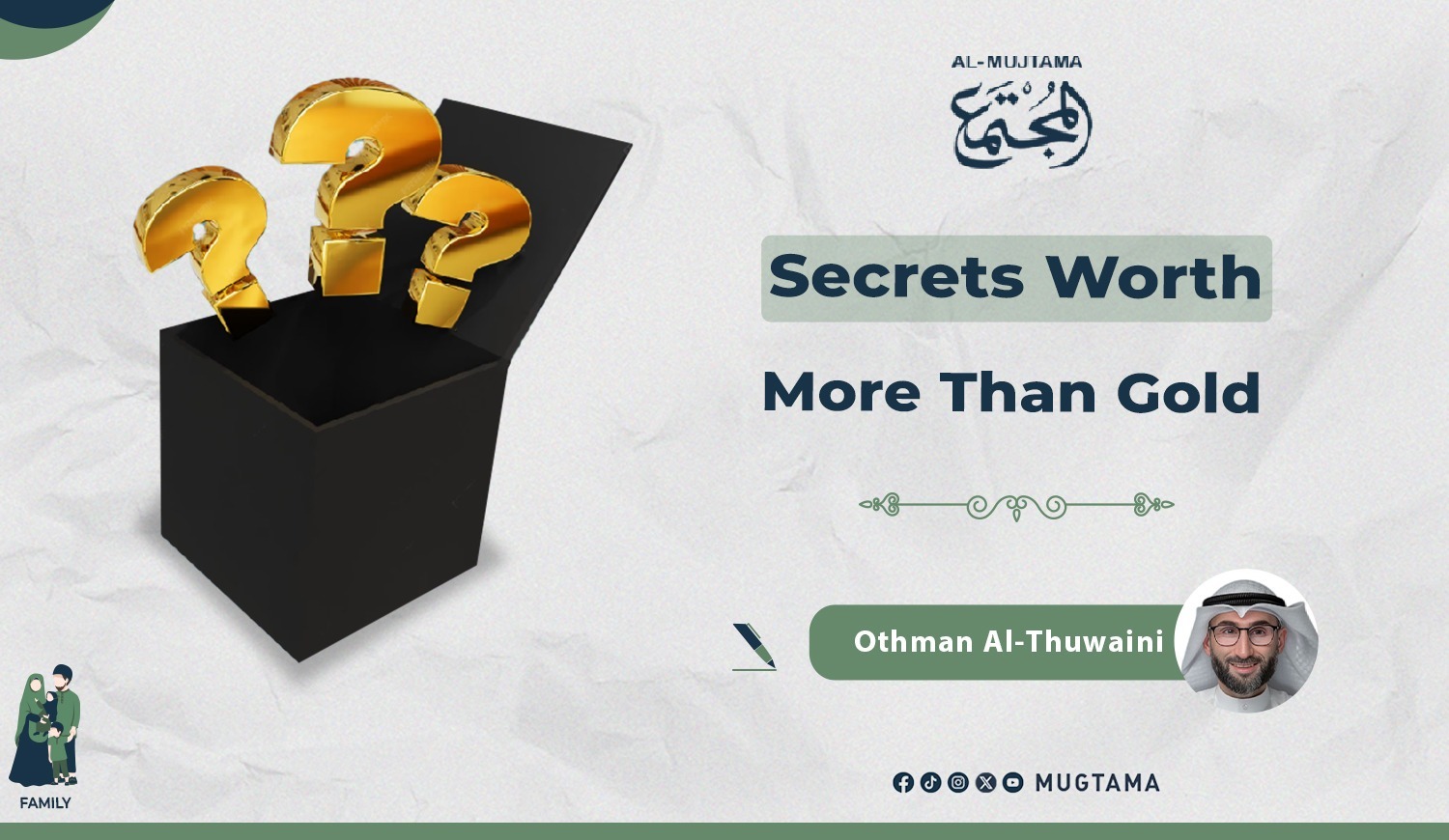Secrets Worth More Than Gold
Hidden Keys to Fatherhood

When we reflect on the growing
distance between fathers and their sons, we must acknowledge that deep
understanding is not born from coincidental, passing encounters. Rather, it is
the result of insight, wisdom, humility, and the descent of fathers from the
heights of experience to the grounds of sincere emotion and unconditional
acceptance.
The greatest secrets of
understanding are not found merely in theoretical parenting techniques or
modern communication methods, but in those moments when a father listens to his
son’s heart, not his words, and senses his concerns before he voices them.
At the heart of this secret lies
a key from the keys of Prophethood, as the Prophet ﷺ said in an authentic narration: “I was sent to perfect good character.” Understanding is not a science to be lectured,
but a character to be lived, a humility to be practiced, and a tenderness to be
given.
When a father sheds the role of
the harsh monitor and assumes the role of the wise companion, the journey of
true understanding begins. A son does not open up to someone who judges him,
but he feels safe and free with the one who offers him security, an embrace that
does not shrink from his questions and confusions, and does not erupt at every
misstep. The first secret of understanding is that a father must believe his
son is not a replica of himself, nor should he be. Rather, he is an independent
being with his own path, inclinations, talents, and challenges, ones that
cannot be solved through comparison, but through inclusion.
The second secret: A father must
understand that emotion precedes instruction, and that if the heart feels
secure, it opens; but if it fears, it closes, pretends, and perhaps even
becomes hypocritical. While the Islamic Shariah has indeed elevated the status
of dutifulness toward parents, it has likewise placed upon them the trust of
care—not through the authority of power, but by the scale of justice. Ibn
al-Qayyim (may Allah have mercy on him) said: “How many have corrupted and
ruined their child while thinking they are honoring and showing compassion to
him!”
How many fathers thought they were raising their children while in truth they
were crushing them, believed they were guiding them while in fact suppressing
them.
The third secret: It lies in
knowing the psychological and intellectual stages of development, and
understanding the needs of each phase. The child who asks many questions is not
challenging his father's authority, but exploring the boundaries of the
universe and of himself. The rebellious teenager is not rejecting his father’s
person, but testing the presence of his own identity. The girl who isolates
herself is not abandoning her father, but trying to hear her inner voice amid
the noise of the outside world. Those who do not understand this silent
language will interpret it as coldness or disobedience, while in reality, it is
a cry for help in need of someone who can translate it with love, patience, and
frequent companionship.
The fourth secret: A father must
realize that understanding does not mean yielding to every demand, but having
the ability to truly listen, appreciate the reasons, and engage in mature
dialogue that teaches how to disagree without separation. The Messenger of
Allah ﷺ offered the most profound example of this:
when a young man came to him asking for permission to commit adultery, he did
not scold or expel him. Instead, he gently talked to him, until the young man
said at the end of the hadith: “There was nothing more hateful to me than it!”
Understanding also cannot happen
without du’a. How many fathers have knocked on every door of parenting yet
neglected the door of the heavens! Love is provision, acceptance is provision,
and wisdom is provision. And Allah says, “He gives
wisdom to whom He wills, and whoever has been given wisdom has certainly been
given much good.” (Al-Baqarah: 269)
O Allah, grant our fathers and mothers wisdom and gentleness, and open their
insight to understand those You have placed as a trust upon their shoulders.
Furthermore, among the greatest
secrets of understanding is that a father himself must be understood—truthful
in expressing his feelings, not ashamed to say “I’m sorry,” nor too proud to
say “I love you.” Harshness does not produce men, but walls. Coldness does not create
prestige, but distance. Only closeness builds the bridges between two
generations separated by the distractions of life and the widening of distance
between hearts.
Finally, the Ummah that wants to
raise strong generations does not begin with curricula, but with embraces. It
does not build schools before first building the bridges of understanding
within homes. He who understands his son has not merely understood a child, but
understood the future of a nation. He has participated in shaping a human being
capable of carrying the message and advancing change. The family is the nucleus
and understanding is the seed. Civilizations either flourish or wither between
them, and leaders are either made or slaves replicated.
-------------------------------------------------------------










